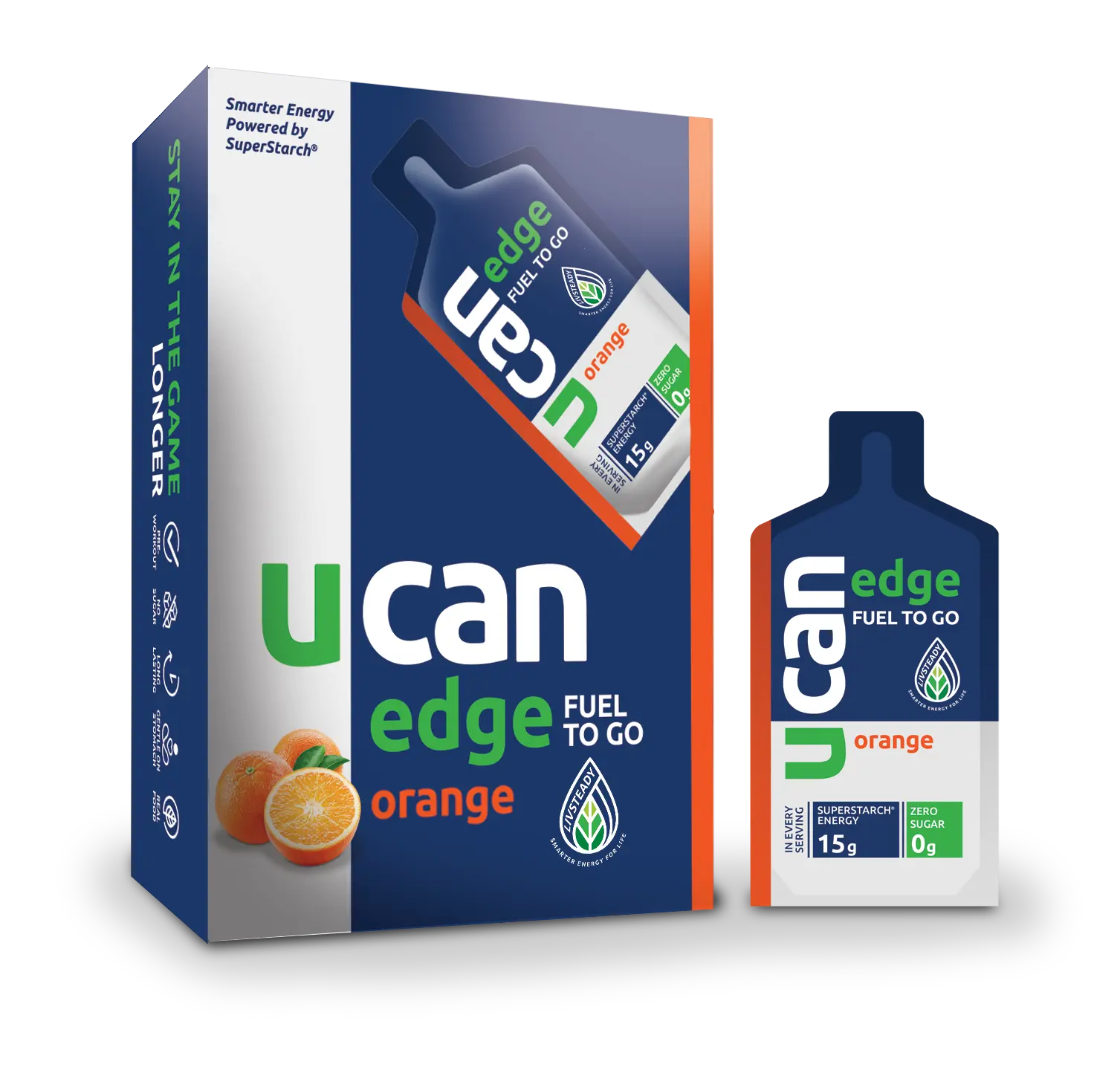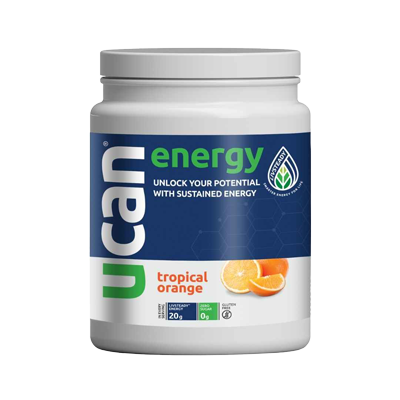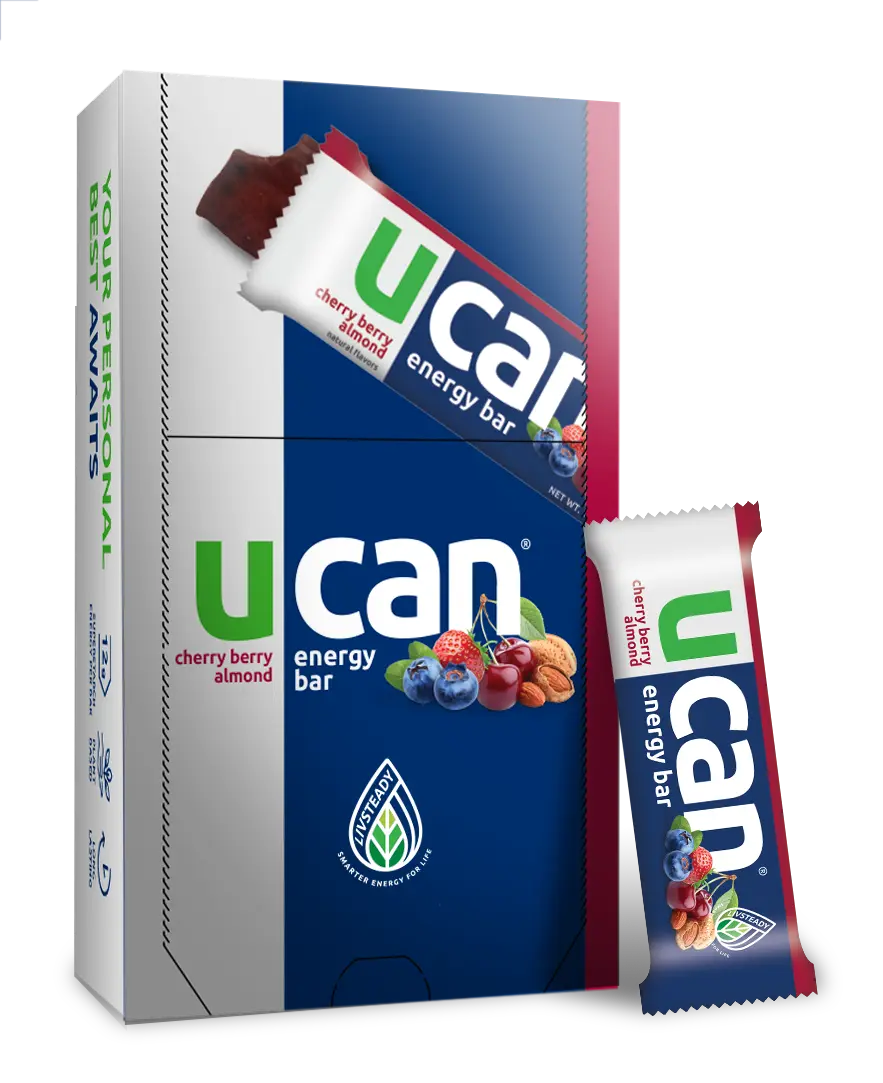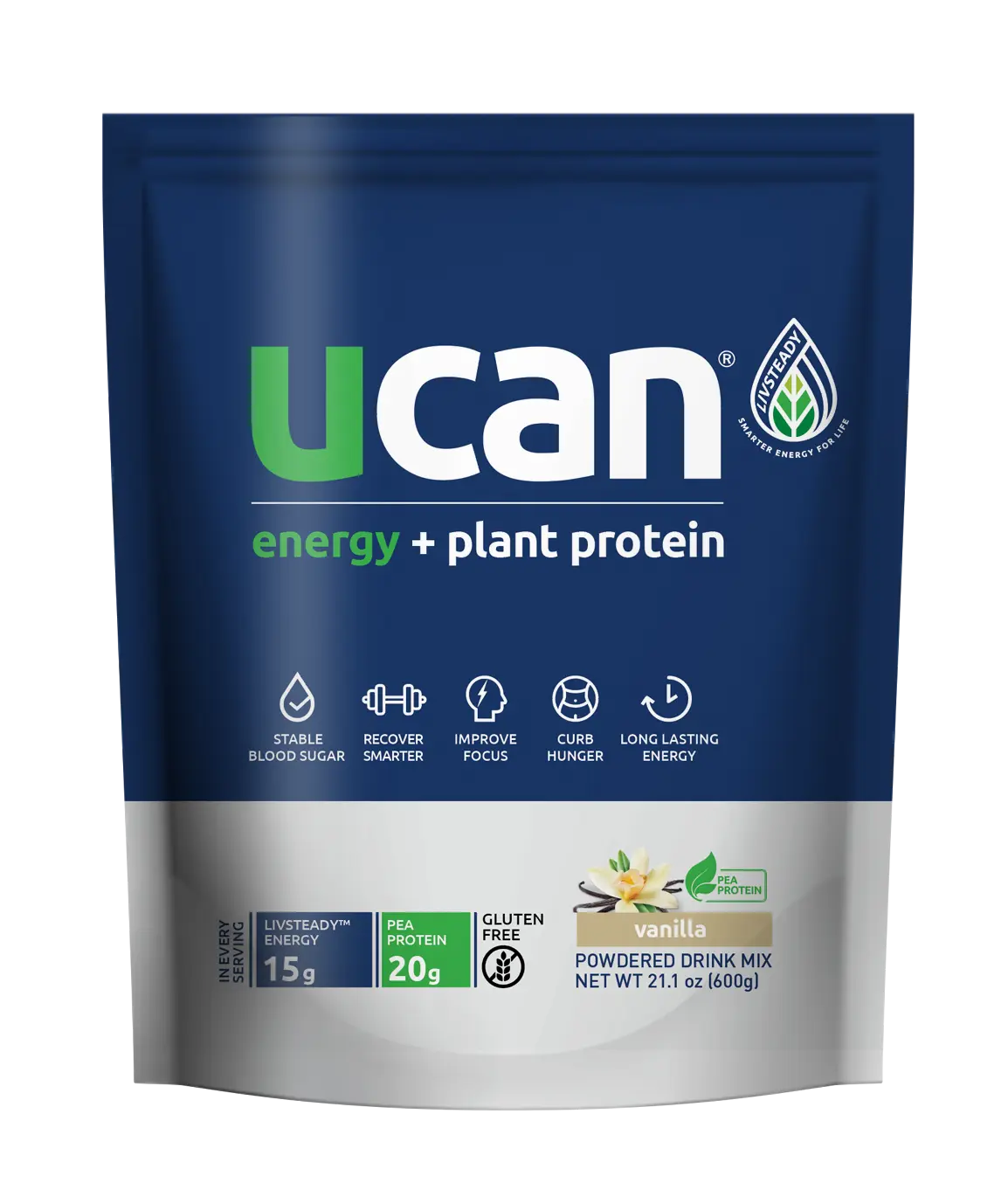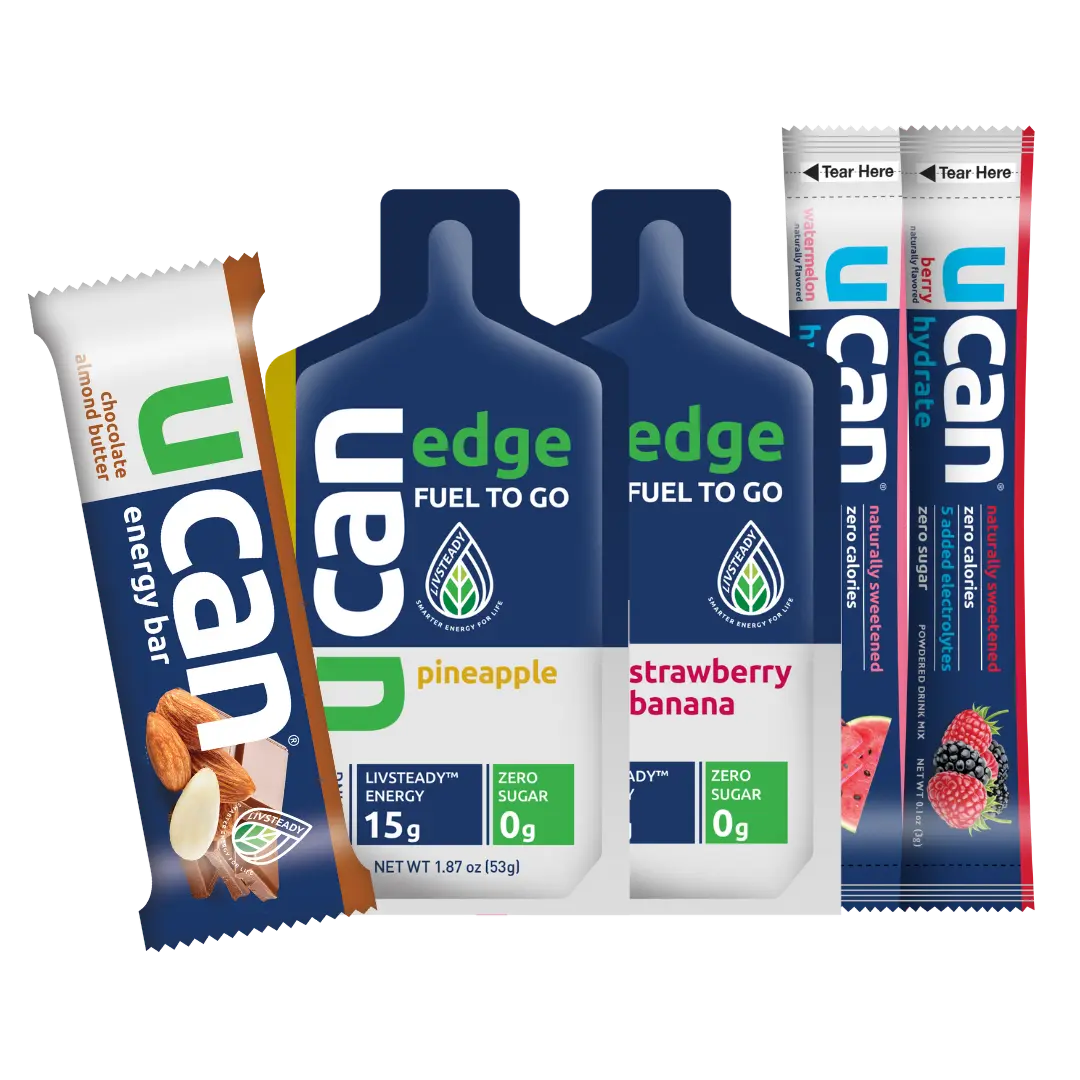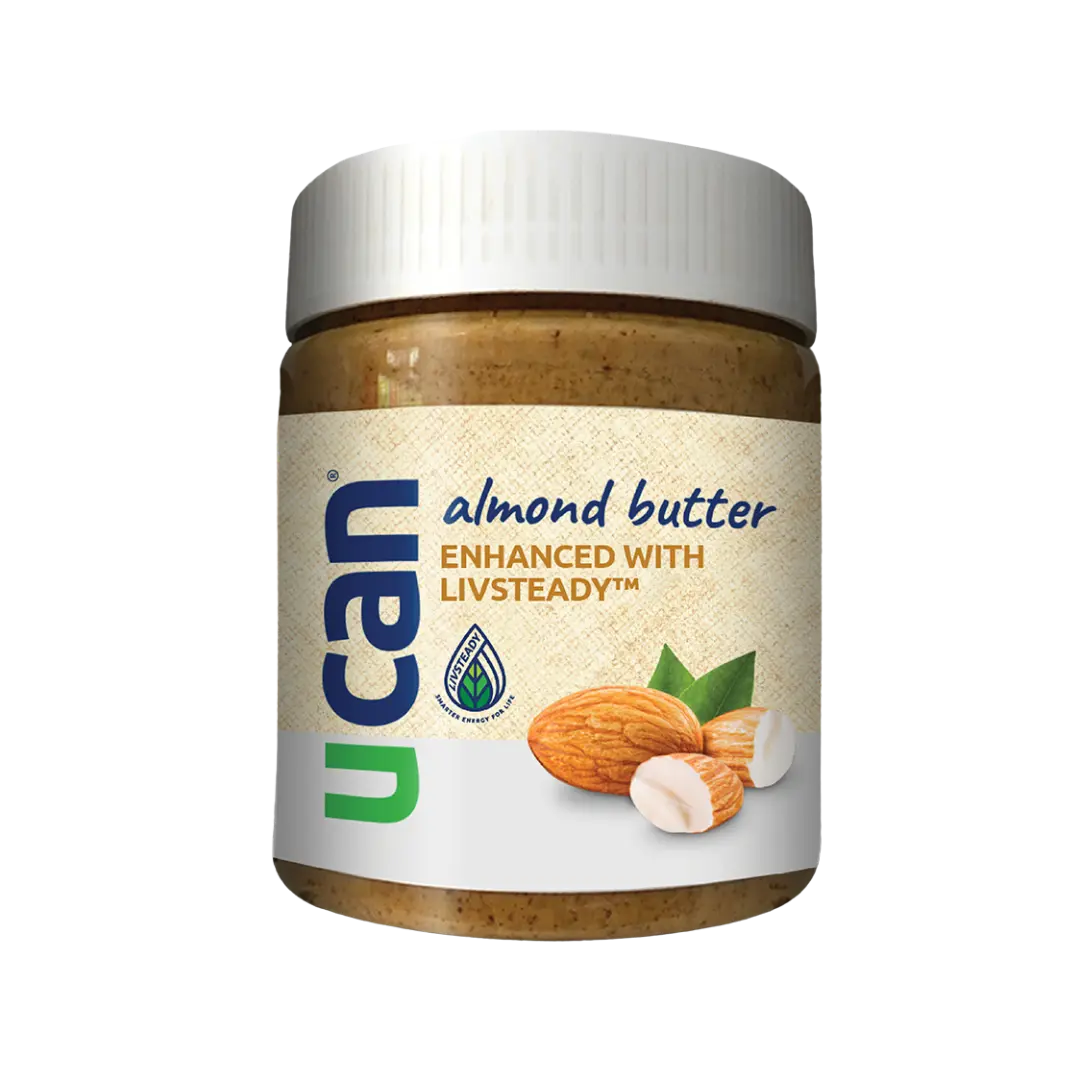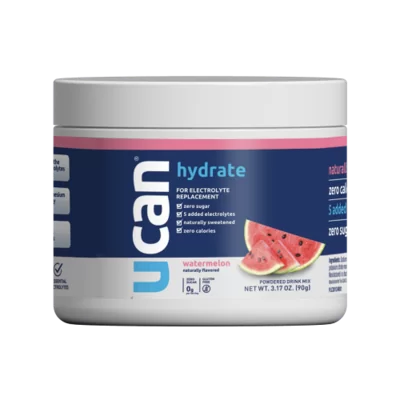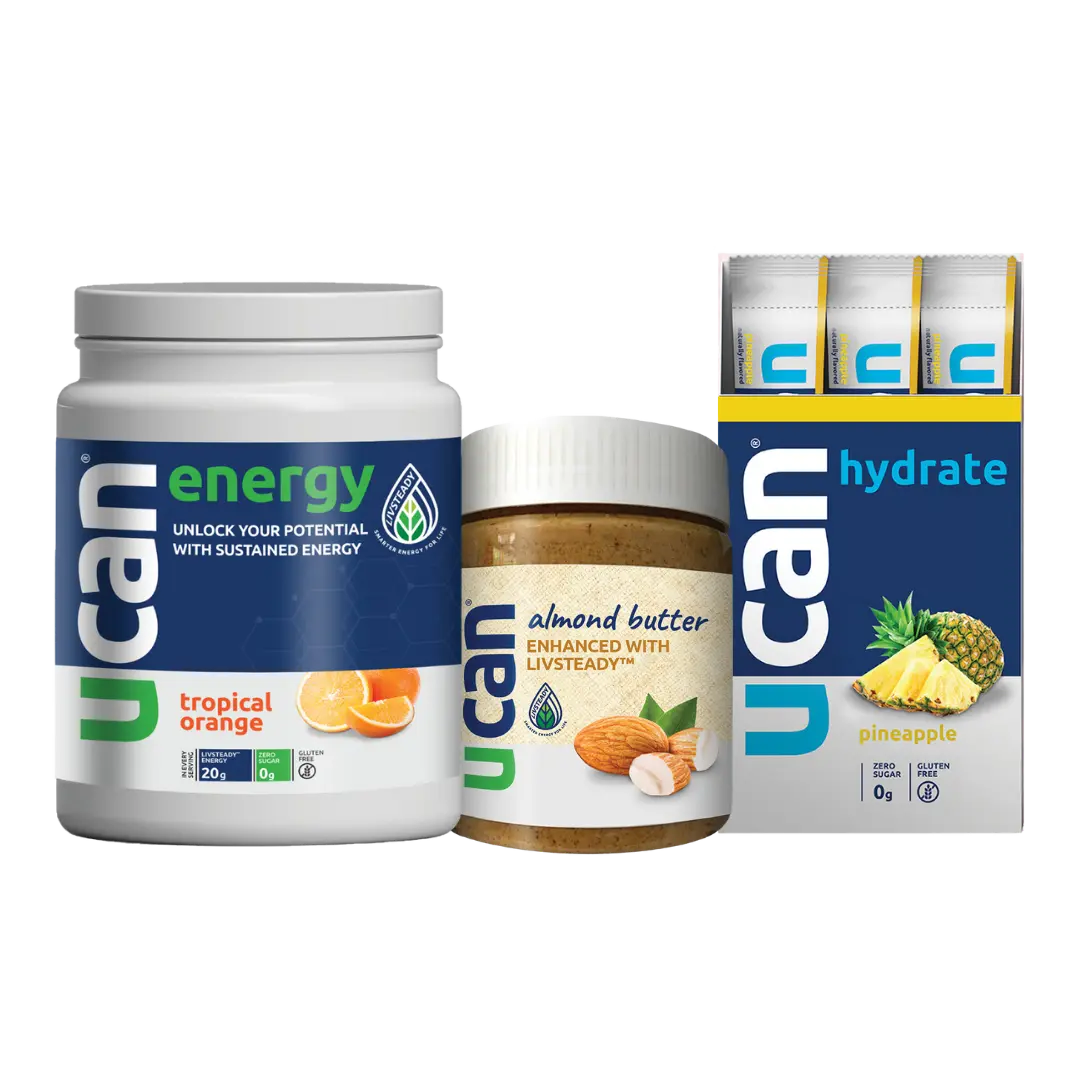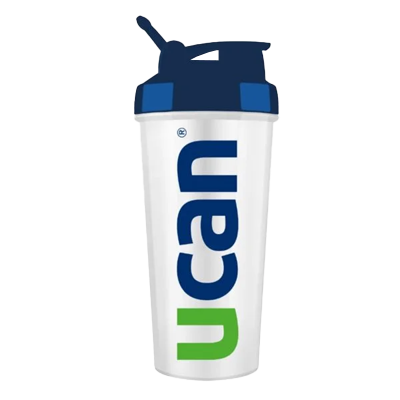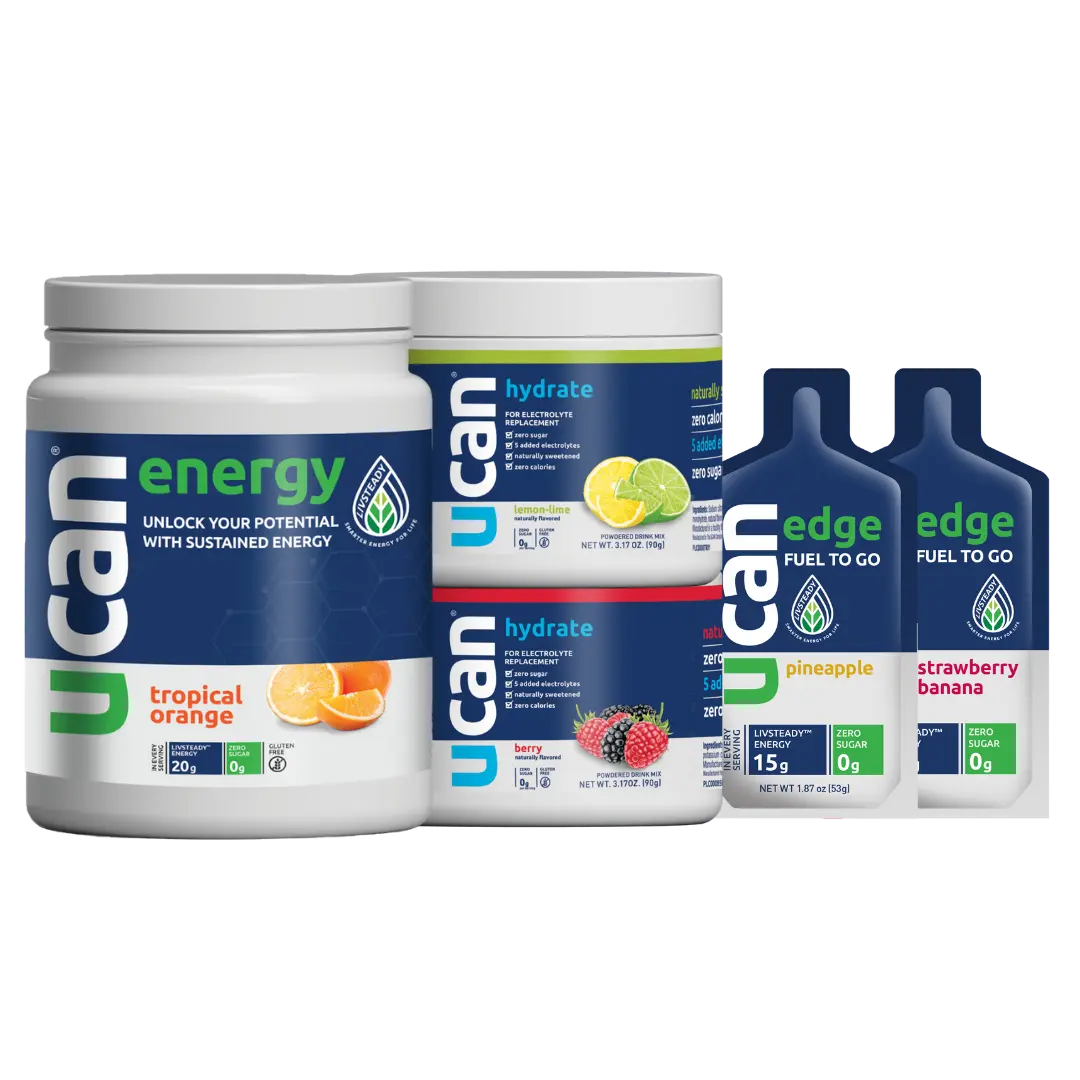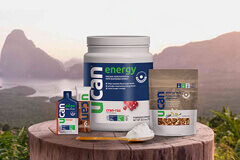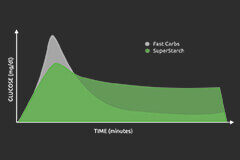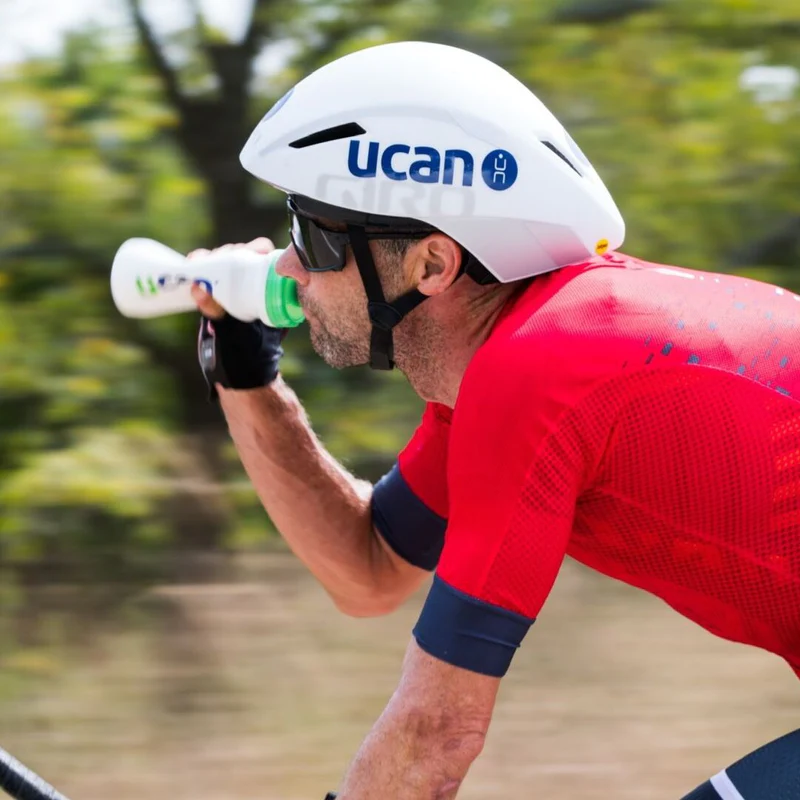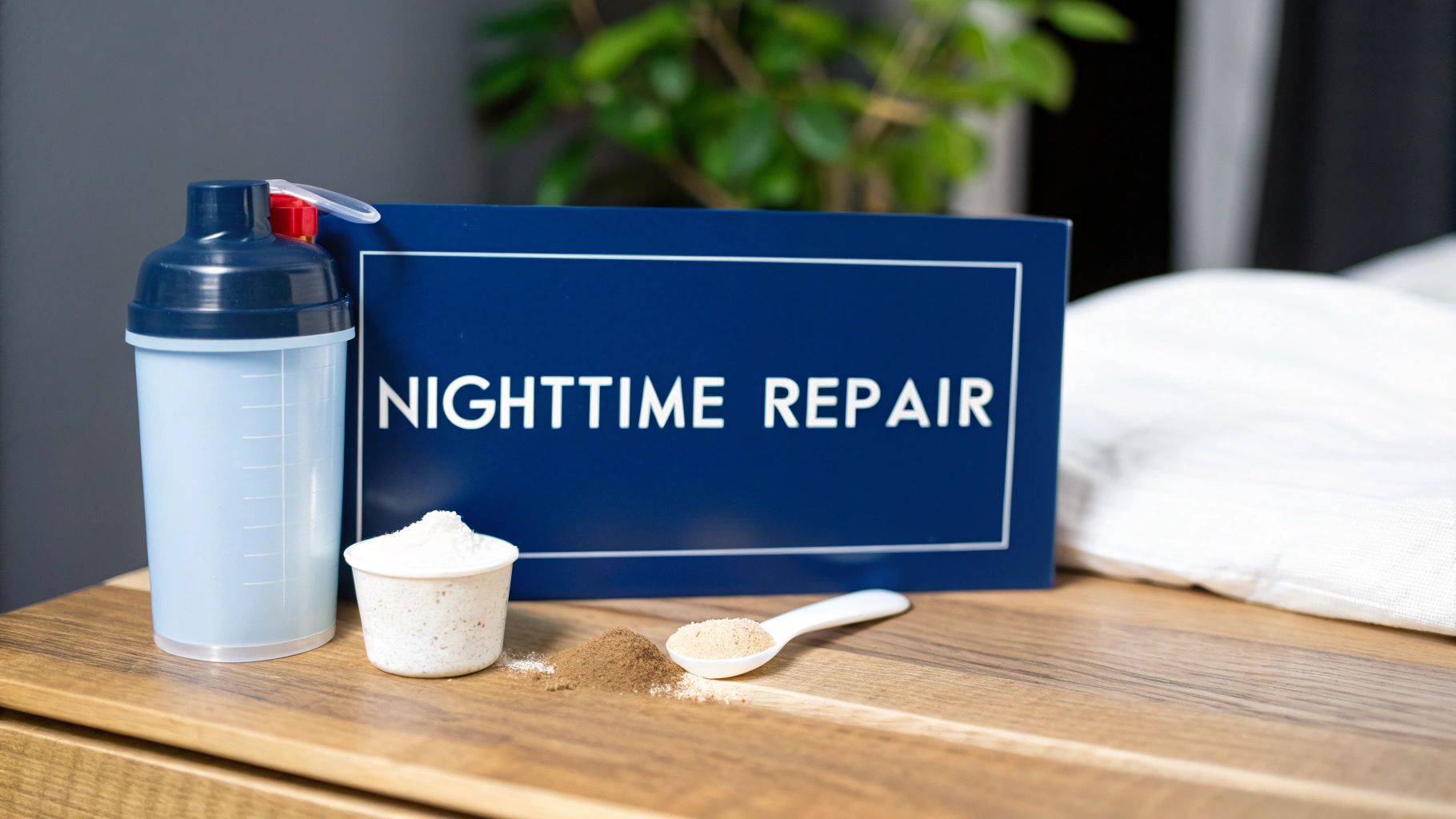Downing a protein shake before bed isn't just for bodybuilders. For endurance athletes, it's a game-changing tactic to turn your sleep into an active recovery powerhouse. You're giving your body a steady supply of amino acids to repair muscle tissue all night long, meaning you can wake up less sore and ready to hit your next training session hard. This is the smart way to make sure the hard kms you put in today translate to real fitness gains tomorrow.
The Overlooked Secret to Peak Performance
For any serious endurance athlete in Australia, the work you put in during training is only half the story. The real magic happens during recovery, and there's a massive eight-hour window most of us aren't using to its full potential: sleep.
While you're asleep, your body is in overdrive, repairing the muscle damage from the day's workout and building you back stronger for tomorrow. This guide is all about how one simple protein shake before bed can completely transform that downtime into a highly productive period for muscle repair and growth.
We're going to bust the myth that pre-sleep nutrition is just for lifters. Whether you're a runner training for the Gold Coast Marathon or a triathlete battling the infamous Brisbane humidity, this is a strategy you need to know about.
**Key Tip:** Think of a pre-bed protein shake as hiring a dedicated repair crew to work the night shift. Without the right building materials (protein), that crew can’t do its job, and the repairs will be slow and incomplete.
Forget everything you’ve heard about avoiding food before bed. When done right, this is a game-changer for waking up stronger and ready to smash your next session. To get the full picture, it helps to understand exactly what protein shakes do for the body during these crucial recovery hours.
This isn't about adding complicated steps to your routine or piling on unnecessary calories. It's about taking the rest you're already getting and making it work harder for you. The benefits are undeniable and have a direct impact on your ability to train consistently and perform when it counts.
Why This Matters for Endurance Athletes
When you're constantly pushing your limits, recovery isn't a luxury—it's the cornerstone of a smart training plan. Here’s exactly why that overnight nutrition is so critical:
- Maximises Muscle Repair: A shake provides a slow, steady stream of amino acids all night, directly fuelling muscle protein synthesis. That’s the scientific term for the process of rebuilding and strengthening your muscle fibres.
- Reduces Morning Soreness: By getting a head start on repairs overnight, you can dial down delayed onset muscle soreness (DOMS). This means you can get back to training feeling fresher, faster.
- Prevents Muscle Breakdown: A long overnight fast can sometimes cause the body to enter a catabolic state, where it breaks down muscle for energy. A slow-digesting protein acts as a safeguard against this.
- Improves Training Adaptation: Better recovery means better adaptation. It ensures you’re actually getting fitter and stronger from all the hard work you’re putting in.
How Your Body Recovers While You Sleep
To really get why a protein shake before bed is such a game-changer, we need to look at what’s actually going on while you're asleep. It’s far from just being downtime; for an athlete, it's your body's prime-time repair shift.
Every tough session you put in—whether it’s a long run along the Yarra or a punishing ride in the Adelaide Hills—leaves behind tiny micro-tears in your muscle fibres. This is normal, and it's the stimulus for getting stronger.
Sleep is when your body rolls up its sleeves and gets to work fixing this damage. The star of this show is a process called muscle protein synthesis (MPS). Think of it as a dedicated construction crew arriving on-site overnight to rebuild and reinforce everything. This is how you adapt and come back stronger for your next workout.
But here's the catch: this construction crew needs building materials. And those materials are amino acids, the very building blocks of protein.
The Problem with an Overnight Fast
A solid eight hours of sleep is fantastic, but it’s a long time to go without food. After just a few hours, your body burns through the amino acids from your dinner. When the repair crew runs out of bricks and mortar, the work doesn't just slow down—it stops.
Even worse, your body can flip into a catabolic state. This is when it starts breaking down your hard-earned muscle tissue to source the energy and amino acids it needs for basic functions. For any endurance athlete, that’s a nightmare scenario. You're not just stalling your recovery; you're actively going backwards.
By providing your body with a slow-release protein source before bed, you give that repair crew a steady stream of building blocks all night. This flips the switch from a catabolic (breakdown) state to an anabolic (building) state, ensuring you’re not just resting, but actively rebuilding.
This one simple habit ensures you wake up having made genuine progress overnight, rather than having lost ground while you slept.
Fuelling the Repair Process All Night Long
The solution is simple: give your body a slow, sustained drip-feed of amino acids throughout the night. This is precisely what the right kind of protein shake before bed does. It’s like setting up an overnight IV of muscle-building fuel.
This constant supply keeps muscle protein synthesis humming along for hours, allowing the repair work to continue uninterrupted. In fact, research shows that taking protein before you sleep can boost MPS rates by up to 22% overnight[1]. That's a massive advantage in recovery you can't get any other way.
This isn’t just about feeling less sore the next day, though that's certainly a welcome bonus. It's about building long-term fitness and resilience. Consistent, high-quality recovery leads to:
- Improved Muscle Quality: Your muscles become stronger and better able to handle increasing training loads.
- Enhanced Endurance: Recovering properly means you can maintain the intensity and volume needed to improve.
- Reduced Injury Risk: Muscles that are fully repaired are far less likely to strain or tear when you're pushing your limits.
For anyone with their sights set on a big event like the Sydney Marathon or Ironman Cairns, this overnight strategy is more than just a "nice-to-have." It’s a fundamental part of a smart training plan. It ensures the hard work you do during the day actually translates into fitness gains while you sleep, which can be the difference between hitting a plateau and smashing through to a new level of performance.
Choosing the Right Protein for Overnight Repair
When it comes to a protein shake before bed, not all protein is created equal. The goal here isn't a quick jolt of fuel. It’s about giving your muscles a sustained, slow-drip feed of amino acids while you sleep. The type of protein you choose is everything.
Think of it like pacing a marathon. You wouldn't sprint the first kilometre, and you don't want your protein to flood your system all at once, only to disappear halfway through the night.
The Sprinter vs. The Marathon Runner Protein
The two most common dairy-based proteins, whey and casein, couldn't be more different in how they work. Getting your head around this is the key to unlocking serious overnight recovery.
Whey protein is the sprinter. It’s famous for digesting rapidly, sending a massive, fast spike of amino acids straight into your bloodstream. This is fantastic right after a tough workout, as it kickstarts the muscle repair process when your body is crying out for nutrients.
Casein protein, on the other hand, is the marathon runner. It actually forms a gel-like substance in your stomach, which slows down digestion significantly. The result? A steady, prolonged release of amino acids over several hours, making it the perfect partner for that long, eight-hour sleep window.
For overnight repair, you need the marathon runner. A slow-release protein ensures your muscle repair crew has a constant supply of building materials all night long, preventing muscle breakdown and maximising recovery.
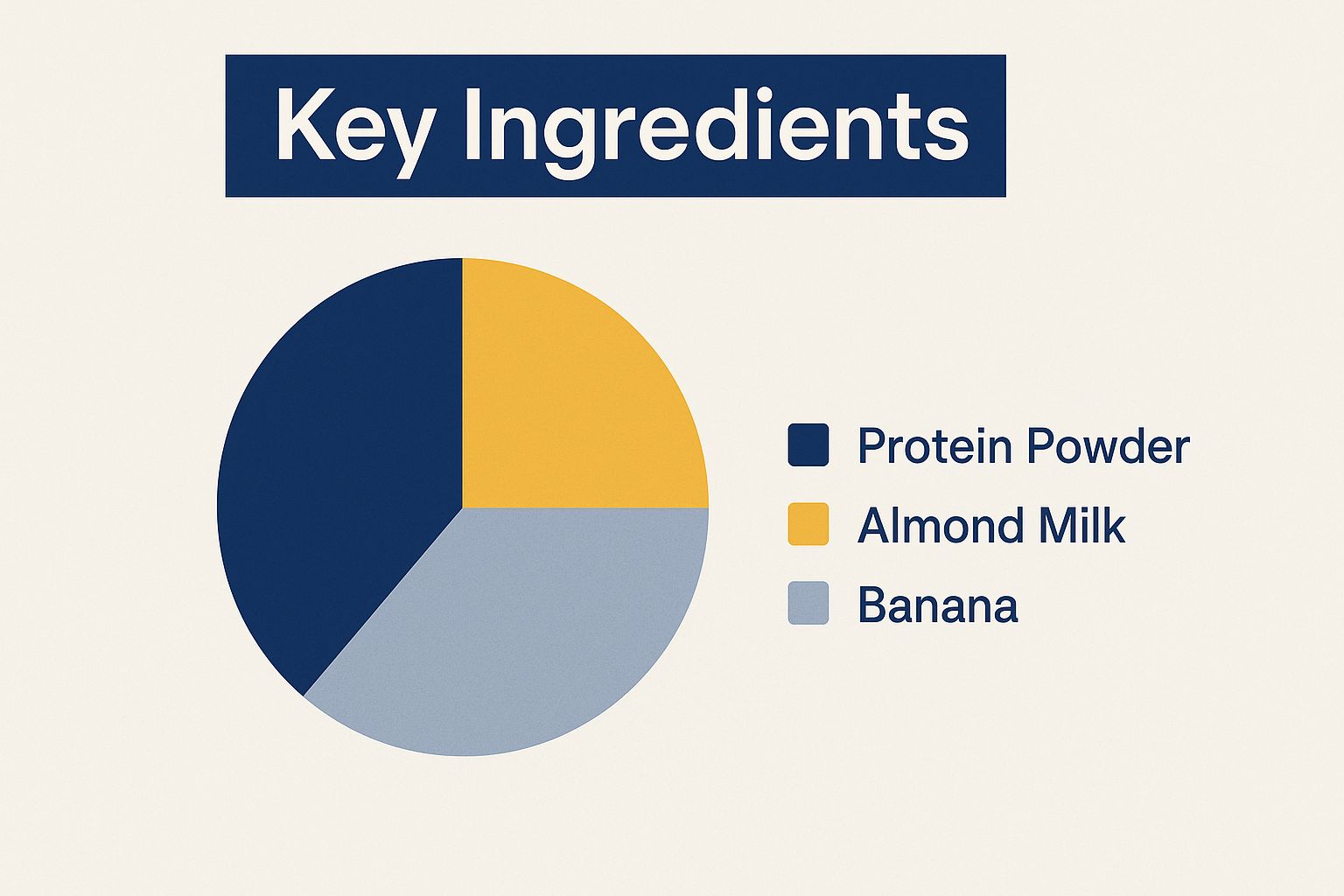
Comparing Pre-Bed Protein Sources
To make the choice clearer, let's break down how these different proteins stack up for a nighttime shake.
| Protein Type | Digestion Speed | Best Use Case | Amino Acid Release |
|---|---|---|---|
| Whey | Fast | Post-workout | Rapid, short-lived spike |
| Casein | Slow | Before bed | Steady, sustained for 6-8 hours |
| Blended | Mixed | Versatile, including pre-bed | Combination of fast and slow release |
As you can see, casein is the standout performer for that crucial overnight period, ensuring your muscles get exactly what they need, when they need it.
The UCAN Advantage: Sustained Fuel for Recovery
This is where a product like our UCAN Energy + Protein really shines. It was built from the ground up for sustained performance and recovery, featuring a premium, slow-digesting protein blend that delivers that crucial trickle-feed of amino acids all night long.
But what really sets it apart for athletes is the inclusion of LIVSTEADY™, our one-of-a-kind slow-release carbohydrate. This provides stable energy to fuel the demanding process of muscle repair without spiking your blood sugar, which can often mess with your sleep. It’s the ideal two-in-one solution for muscle repair and energy replenishment.
How Much Protein Do You Really Need Before Bed?
So you’ve picked the right type, but how much should you actually be having? The trick is to take enough to kickstart muscle protein synthesis (MPS) without overloading your system.
Research, including studies often referenced by Aussie sports dietitians, points to around 30-40 grams of casein protein before sleep to significantly boost overnight MPS[1]. This is the biological process that’s absolutely critical for muscle repair and growth. For most athletes, aiming for 20-40 grams in your pre-bed shake is the sweet spot. This amount is proven to maximise your body’s muscle-building response while you rest, setting you up to wake up recovered and ready for the next day's training.
Of course, once you've figured out what you need, the next step is finding quality supplements you can trust.
Simple and Effective Pre-Bed Shake Recipes
Alright, let's get practical. The sweet spot for having your protein shake before bed is about 30 to 60 minutes before you actually turn in for the night. This gives your body a head start on digestion so it doesn't get in the way of a good night's sleep.
The real secret to making this a habit that sticks is keeping it simple. You're not making a gourmet smoothie; the goal is a quick, effective shake that becomes a no-brainer part of your wind-down routine.
Here are three dead-simple recipes I recommend to endurance athletes. Each takes less than two minutes to whip up.
The Lean Recovery Shake
Think of this as your foundational, no-fuss recovery tool. It's perfect after a regular training day when you just need to feed your muscles for overnight repair without piling on extra carbs or fats.
- How to make it: Just mix one scoop of UCAN Energy + Protein (Chocolate or Vanilla) with 300-400ml of cold water. Give it a good shake and you’re done.
- Why it’s my go-to: It delivers a steady stream of high-quality, slow-release protein to your muscles all night long. Using water keeps it light and super easy on your gut right before bed.
- When to use it: Make this your default shake on most training days, especially during a heavy block when you’ve already had a proper post-workout meal earlier.
The Glycogen Top-Up Shake
Finished a brutal evening session? Maybe some late track repeats or a hard bike ride after work? Your glycogen stores will be running on empty. This shake gives them a little boost to replenish overnight while still kicking off muscle repair.
- How to make it: In a blender, combine one scoop of UCAN Energy + Protein (Vanilla is great for this one) with 300ml of milk (dairy or almond works well) and half a small, ripe banana.
- Why it’s my go-to: The milk adds extra casein and makes it creamier, while the banana offers a quick, easily digestible source of carbs to help restock those tired muscles.
- When to use it: Perfect after a tough late-afternoon or evening workout that leaves you feeling properly spent. It’s also a smart move when you’re backing up for another big session the next morning. If you want something a bit more decadent, our [Chocolate Almond Butter SuperShake recipe](https://generationucan.com.au/chocolate-almond-butter-supershake/) is another fantastic choice.
**Coach’s Tip:** It’s easy to get carried away here. A small bit of fruit for glycogen is perfect, but adding handfuls of nuts, seeds, or sweeteners can make the shake too heavy and might mess with your sleep. Keep it simple and focused.
The Plant-Based Repair Shake
For athletes who follow a dairy-free lifestyle, you can absolutely get the same overnight recovery wins with a good plant-based protein. The trick is to find a blend with a complete amino acid profile to get the job done right.
- How to make it: Mix one scoop of a quality plant-based protein blend (a pea and rice combo is usually a safe bet) with 350ml of unsweetened almond or soy milk.
- Why it’s my go-to: Many modern plant proteins are designed for a sustained release of amino acids, mimicking what casein does. Using a fortified plant milk also adds a nice creamy texture and some extra nutrients.
- When to use it: This is the ideal nightly shake for any vegan or lactose-intolerant athlete looking to consistently support muscle repair and nail their daily protein targets.
Busting the Big Pre-Sleep Nutrition Myths
Even with all the benefits laid out, I get it. There's often a bit of hesitation around eating or drinking anything, including a protein shake before bed. We’ve been hammered with the idea of avoiding late-night food for years. So, let’s tackle the three biggest myths that hold endurance athletes back from using this powerful recovery tool.
Myth 1: “It Will Make Me Gain Fat”
This is the number one worry I hear from athletes, and it's time to put it to rest once and for all. The idea that any food eaten after 8 p.m. magically turns into fat is one of the most stubborn nutrition myths out there. Gaining unwanted weight comes down to a simple truth: you’re consuming more total daily calories than your body is burning.
A controlled, 20-40 gram protein shake is a precision tool, not a late-night binge. We’re talking about a modest number of calories—usually between 120 and 180—earmarked for the demanding job of repairing and rebuilding your muscles.
**The Bottom Line:** Your pre-bed protein shake is functional recovery fuel. As long as it fits within your overall daily energy budget, your body will put it to work building lean, powerful muscle, not storing it as fat.
Think of those calories as an investment in your training. They go directly towards building a stronger, more efficient engine for your sport.
Myth 2: “It Will Wreck My Sleep”
Another common fear is that a shake will cause digestive issues that leave you tossing and turning all night. And sure, a heavy, greasy meal would almost certainly disrupt your sleep, but a simple, easily digestible protein shake is a completely different beast.
For most athletes, a liquid protein source is incredibly gentle on the stomach and is processed efficiently. In fact, some research has shown that the amino acids in protein, particularly tryptophan, may even support sleep quality[2]. This shows that for highly trained people, a protein shake before bed doesn't get in the way of quality rest. The key is just to keep it simple and listen to your body. If a particular ingredient doesn't sit right with you, simply adjust.
Myth 3: “That’s Just for Bodybuilders”
This might be the most outdated myth of the lot. The image of a huge bodybuilder chugging a shake is a strong one, but the science of muscle repair applies to everyone who pushes their body. Endurance sports are incredibly demanding and cause a huge amount of muscle breakdown.
Every long run, ride, or swim creates micro-tears in your muscles, just like resistance training does. The need for repair is just as urgent—maybe even more so, given the sheer volume of training. An endurance athlete training for the Melbourne Marathon or a gruelling trail ultra needs every single recovery advantage they can find.
A protein shake before bed isn't about getting "bulky." It’s a smart, efficient strategy for any athlete who is serious about:
- Speeding up recovery between tough sessions.
- Improving how they adapt to their training.
- Holding onto lean muscle during intense training blocks.
- Performing consistently, day in and day out.
This isn’t some niche trick for one type of athlete. It’s a fundamental recovery principle for anyone looking to get the most out of their body.
Integrating Overnight Recovery into Your Training Plan
Knowing how to use a protein shake before bed is one thing, but knowing when to use it is what turns a simple habit into a calculated performance strategy. This isn’t something you need to do every single night. Think of it as a specific tool you pull out of your kit when the training really starts to bite.
The real magic of overnight recovery shines during your toughest, most demanding training blocks. Are you in the peak weeks leading up to a massive event like Ironman Cairns? Or maybe you’re just coming off a brutal weekend with a long ride on Saturday followed by a long run on Sunday? That’s precisely when your body is screaming for extra support to rebuild and adapt.
Timing Your Recovery for Maximum Gains
To get the most out of this, you’ve got to align it with your training cycle. It's all about being strategic, not just going through the motions.
Look at your training week. The night after a high-intensity session—like hill repeats that absolutely trash your quads or a tempo run that pushes your lactate threshold—is the perfect time to bring in a pre-bed shake. These workouts create significant muscle damage, and feeding your body an overnight supply of amino acids gives it an immediate head start on the repair job.
**Coach’s Insight:** The goal is to match your recovery intensity to your training intensity. On an easy recovery run day, your normal meals are probably fine. But after a gut-busting interval session? That overnight protein support becomes non-negotiable for bouncing back strong.
This targeted approach makes sure you’re fuelling the adaptation process when it counts. It helps you soak up all the benefits of your hardest workouts and stops you from digging yourself into a deep hole of fatigue.
A Powerful Tool for Masters Athletes
This strategy is also incredibly valuable for masters athletes. As we get older, our bodies naturally start to lose a bit of muscle mass each year, a process called sarcopenia. Holding onto lean muscle becomes more of a challenge, yet it’s absolutely critical for staying powerful, resilient, and injury-free.
This is where a protein shake before bed can be a real game-changer. Research has highlighted its potential for helping older adults maintain muscle mass. Studies show that having casein protein before bed can help prevent the negative overnight protein balance that can speed up muscle loss[3]. It’s a proactive way to push back against age-related muscle decline, keeping you strong on the bike and resilient on the run for years to come.
By weaving pre-sleep protein into your seasonal plan, you turn it from just another shake into a deliberate piece of your performance puzzle. It ensures you’re not just training hard, but recovering smart, staying ahead of fatigue, and showing up to every session ready to give it your all.
FAQ: Your Questions on a Protein Shake Before Bed
Let's tackle a few of the common questions that pop up when people think about adding a pre-bed protein shake to their routine.
Can I Just Eat Food Instead of Drinking a Protein Shake?
Of course. A protein shake is really all about convenience and making digestion easy on your system. If you'd rather stick to whole foods, something rich in casein like Greek yoghurt or cottage cheese is a fantastic choice.
That said, a well-formulated shake like UCAN Energy + Protein gives you a precise dose of protein and is often much lighter on the stomach right before you lie down. This helps you avoid that heavy, over-full feeling that can easily get in the way of a good night's sleep.
Will a Protein Shake Before Bed Help Me Lose Weight?
It can definitely support your weight management goals, but it’s no silver bullet for fat loss on its own. The real advantage comes from protein's ability to boost satiety – that feeling of fullness. This is brilliant for curbing those late-night cravings for junk food.
A pre-bed shake also fuels the growth of lean muscle, which is your metabolic engine. The more lean muscle you have, the more efficiently your body burns energy. Just remember to account for the calories from the shake within your total daily intake.
Should I Be Having a Pre-Bed Shake Every Single Night?
Not at all. Think of it as a strategic tool in your recovery toolkit, not a non-negotiable daily ritual. The best time to use it is after your most demanding training days or toughest workouts, when your body is screaming out for raw materials to repair and rebuild.
On lighter training days or rest days, the protein you get from your regular meals is probably more than enough. It's all about listening to your body and matching your recovery strategy to your training intensity.
References
[1] Res, P. T., et al. (2012). Protein ingestion before sleep improves postexercise overnight recovery. Medicine and science in sports and exercise, 44(8), 1560-1569.
[2] St-Onge, M. P., et al. (2016). Effects of Diet on Sleep Quality. Advances in Nutrition, 7(5), 938-949.
[3] Kouw, I. W. K., et al. (2017). Protein Ingestion before Sleep Increases Overnight Muscle Protein Synthesis Rates in Healthy Older Men: A Randomized Controlled Trial. The Journal of Nutrition, 147(12), 2252-2261.
Ready to turn your sleep into a powerful recovery tool? UCAN's unique blend of slow-release protein and LIVSTEADY™ carbohydrate is designed to fuel muscle repair all night long without the sugar crash.

